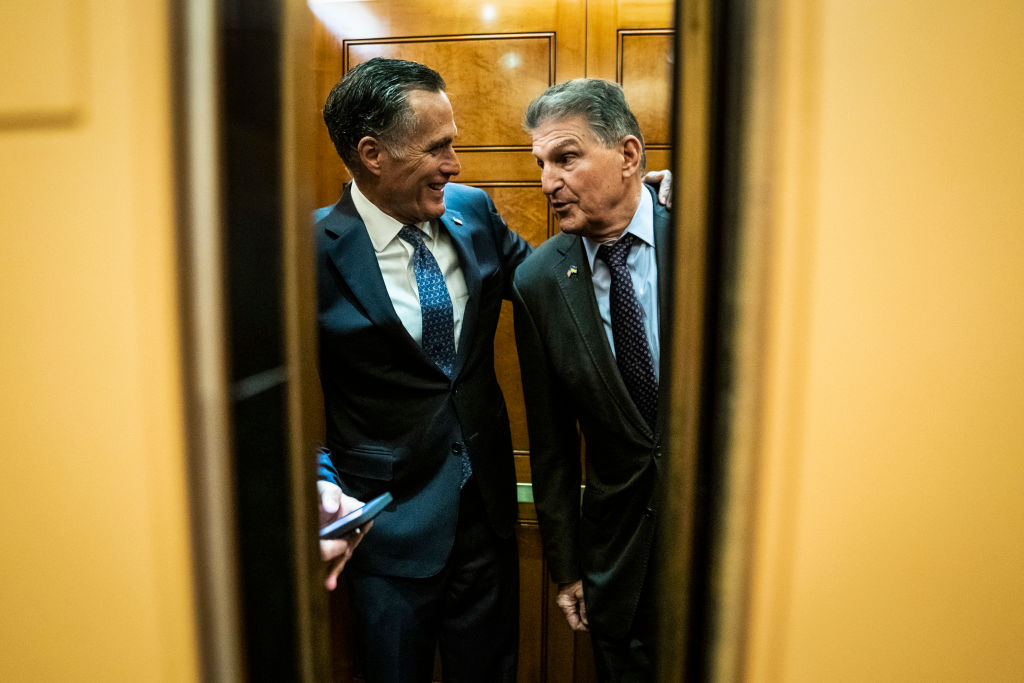
This article is part of The D.C. Brief, TIME’s politics newsletter. Sign up here to get stories like this sent to your inbox.
The contempt was sincere when Sen. Bernie Sanders took the airwaves last weekend to voice a common frustration in the Senate’s Kennedy Caucus Room: Sen. Joe Manchin was an unreliable negotiator who had double-crossed Democrats once again.
“The problem was that we continue to talk to Manchin like he was serious. He was not,” he told ABC’s This Week. In a Senate famed for its comity, this was the equivalent of unleashing an airhorn inside an oboe recital.
There’s one problem with this rage. Manchin has always been a proud fly in the legislative ointment, an unrepentant naysayer to party orthodoxy who is not worried about his relationships in the Capitol. And that’s why he will probably be the last statewide elected Democrat to represent West Virginia for a long time: he values his constituents’ contempt of Washington far more than he fears his colleagues’ contempt of him. And when it comes to President Joe Biden’s frustrations with Manchin’s singular and capricious veto-proof whimsy, Manchin truly cannot be bothered. Voters in West Virginia prize Manchin’s perceived indifference to party politics, and Manchin likes to serve them a skillet of stick-it-to-the-man every chance he gets.
Manchin had committed in private last year to supporting the parts of the second iteration of Biden’s Build Back Better plan with plenty of strings attached. Manchin didn’t like parts of the first one, but promised to like the second one—that is until the sequel also ran afoul of his need to scuttle huge swaths of Democrats’ agenda, such as a tax hike on the wealthy. So Manchin pivoted, and tried a third time to outline what he could accept, and Democrats acquiesced. And then, again, the proposal ran aground of the SS Manchin’s norms because, in his mind, more government spending would only hasten inflation.
More from TIME
Welcome to governing in 2022, with Prime Minister Manchin running the show. (Credit where it’s due to The New Republic for the analogy.) The entire country’s agenda is set by the one Senator who stands in the breach. The Senate is split 50-50, and on matters extraneous to the budget, a 60-vote threshold is needed. However, if the Senate rule-maker gives the lawmakers a pass, Democrats can play with a 51-vote majority on anything deemed budget-adjacent, thanks to Vice President Kamala Harris’ tie-breaking vote. All that means that if every member of the Senate’s Democratic caucus sticks together to tuck novel ideas into the budget, they can actually get stuff done.
Democrats know they’re in a precarious position. Their governing majority is as fragile as they come, the political equivalent of a faberge egg. Anything approaching a slammed door crashes this souffle. And a dozen or so midterm races from Washington state to New Hampshire threaten those egg whites’ stability as much as any jackhammer on the street.
Put another way: Manchin has the detonator to the Democratic majority in his paws and is at best indifferent to their fate. (In his latest thwarting of the White House’s agenda, Manchin could ultimately damage U.S. credibility by derailing a global minimum tax the Biden administration negotiated with more than 100 countries.)
Manchin has long insisted that he cannot hurt his constituents. That means catering to his state’s vaunted—but vanishing—coal industry. Anything broaching green jobs is toxic for his coal-country neighbors. It’s a branding exercise that may, perhaps, keep him holding on as West Virginia’s last Democratic Senator. President Donald Trump won West Virginia by 39 points in 2020; Manchin won re-election two years earlier by three points. Manchin knows his value to his party, and Democratic leaders are careful to give him sufficient space to stay in the seat as long as he wants.
But there are limits, especially when Democrats realize their coast-to-coast hopes hinge on a Red State legislator who has an effective veto. Democrats had hoped to defend their slim majority on an agenda that defeated Covid-19, rebuilt roads and bridges and tunnels, stitched a new social safety net, saved the planet, and lowered drug prices. At best, their to-do list is half done, and Democrats now are saying they’ll take a mini-version of the to-do list just to show some progress and boost Biden’s abysmal polling.
Manchin now says he may support a two-year provision to cap prescription drug prices but wants to wait until the fall for the big-ticket items left in the queue, meaning they’ll slip past Election Day and likely into a lame-duck Congress, when it will be too late for these measures to energize voters in tight races around the country. It’s not hard to imagine why so many of Manchin’s colleagues in tough re-election fights hold him in such contempt.
Make sense of what matters in Washington. Sign up for the D.C. Brief newsletter.
More Must-Reads From TIME
- The 100 Most Influential People of 2024
- The Revolution of Yulia Navalnaya
- 6 Compliments That Land Every Time
- What's the Deal With the Bitcoin Halving?
- If You're Dating Right Now , You're Brave: Column
- The AI That Could Heal a Divided Internet
- Fallout Is a Brilliant Model for the Future of Video Game Adaptations
- Want Weekly Recs on What to Watch, Read, and More? Sign Up for Worth Your Time
Write to Philip Elliott at philip.elliott@time.com